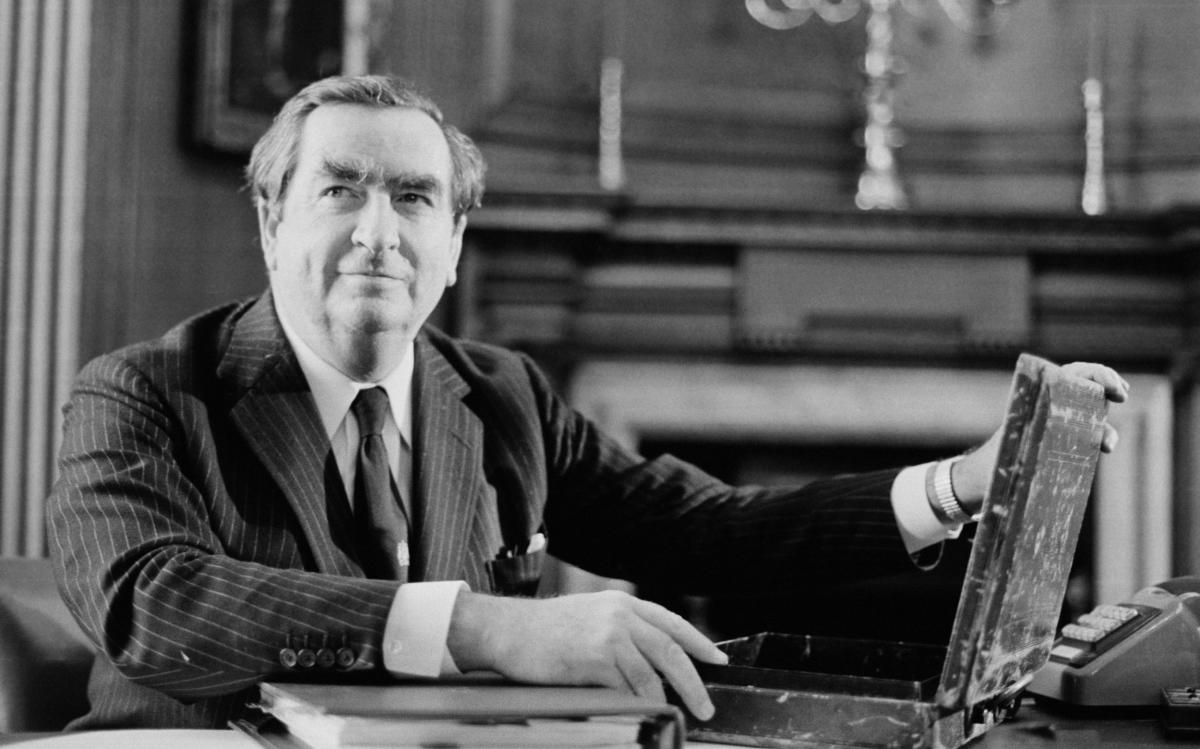
Rishi Sunak left the D-Day celebrations early, got caught in the rain and came under fire for some Treasury forecasts of tax rises. The Labour Party droned on about “change” while endlessly repeating some imaginary numbers about “investing” in the NHS and creating “green jobs”. Meanwhile, the Lib Dems sailed through the past six weeks with fun days out at CenterParcs.
Over the course of the election campaign, the main parties have argued furiously about trivialities and crafted photo ops straight out of the Tony Blair playbook. Yet there is an ugly truth lurking behind this election: Britain is far closer to bankruptcy than our political elites are willing to admit. Worse still, no one even wants to talk about it.
Now that the campaign is over, it is worth casting a glance at the statistics that really matter. Unfortunately, they make for sobering reading. Taxes are already at a 70-year high, and yet we are nowhere close to balancing the books.
Over the course of this year, we will add another £87 billion, or around 3 per cent of GDP, to the national debt, according to the Office for Budget Responsibility (OBR). And this is happening at a time when the economy is recovering, and the Government has pushed through a series of punishing tax rises.
We should be paying back debt at this point in the cycle, not racking up even more. Our debt to GDP ratio is close to 100 per cent, and tripled in the 16 years to 2023, according to the Resolution Foundation, the largest ever increase in peacetime. We are very near to the 112 per cent level that has just led to the humiliating downgrade of France’s credit rating twice over the past six months.
It doesn’t stop there. We are still racking up huge off-balance sheet debts. Such as? There is already £200 billion of outstanding student debt, and that is forecast to rise to over £400 billion by the 2040s. Few believe that graduates will earn enough to pay back their loans in full, especially as our zero-growth economy is hardly creating any new professional jobs to absorb them all.
We are on the hook for some £2.6 trillion in “unfunded” public sector pension entitlements. As the state employs more and more people – we added another 135,000 to the government payroll in the year to September 2023 – that figure will carry on getting larger and larger. We are legally mandated to hit a net zero target which the OBR has calculated could add at least another £300 billion to the government’s costs over three decades. In Wales, a staggering 28 per cent of working age people are now on benefits, depending on the state to support them, and the figures are little better in the rest of the country.
A few minor tweaks to the tax system, such as clamping down on tax avoidance or getting tougher on non-doms, are not going to make any difference to that. As the OBR has pointed out, the tax burden is set to rise to 37.7 per cent of GDP by 2027-28, the highest level in our history. Sure, you can argue that a handful of European countries manage to squeeze more from their weary citizens, but there is no empirical evidence for that being possible in the UK.
Anyone who tries to claim that we are still “under-taxed” compared with much of the rest of Europe, to paraphrase the Labour adviser and former HMRC boss Sir Edward Troup, needs to explain why no one has managed to extract more than 40 per cent of GDP out of the taxpayer in the past. Quite incredibly, even the Labour chancellors of the 1970s, such as Denis Healey, who (in)famously promised to tax the rich “until the pips squeak”, raised less than Jeremy Hunt is currently.
Britain is heading into uncharted fiscal waters. We face extra spending on health and social care as the population ages. We have record levels of economic inactivity, and those people neither in work nor looking for it need to be supported somehow. We have stagnant productivity – yet it is only through increasing output that we can achieve real growth. The “peace dividend” is over. Politicians of all stripes are doggedly committed to frittering away hundreds of billions on net zero.
And yet, we are at, or close to, our taxable limit. There is only so much the country can take, before entrepreneurs drift elsewhere, companies relocate, and individuals take early retirement. Were any politicians honest during this election campaign about the state we are in, and the genuinely difficult decisions that will need to be taken to release us from this torpor?
In late June, the Institute for Fiscal Studies (IFS) published research on these terrifying spending demands. It argued that there was a “conspiracy of silence”, and that “painful choices” were being ignored. Strangely, given the IFS is revered by a political class that pays lip service to “evidence-based” policy making, its report was, with depressing predictability, completely ignored. No one wants to talk about it. Why? Perhaps we are in collective denial. Maybe the reality of our predicament is too harsh.
But this cannot last. The UK faces a fiscal crunch, while the global economy looks as precarious as ever. The US, under President Biden, has been riding a wave of unprecedented government borrowing, but the sugar rush is now wearing off and our largest trade partner may well have slumped into a recession by the end of the year. The eurozone appears incapable of sustainable growth, and could be plunged back into crisis at any time, not least if France enters a debt crisis.
The Chinese economy is no longer expanding the way it was 10 years ago, and a wave of cheap goods could soon undercut British and European industries. As we discovered during the short-lived Truss premiership, the UK is vulnerable to a collapse of confidence in the bond market.
The Bank of England has little credibility left, we don’t have the luxury of printing the world’s reserve currency, nor do we have the sheer size of the euro to protect us. If the bond markets decide not to fund our delusional belief that we are still a rich country anymore, then we will be plunged straight into a cataclysmic financial crash.
So here is what politicians aren’t telling us: the UK is perilously close to national bankruptcy. It could only take a mild global downturn to tip us over the edge. And no one dares mention it. Of the many deceptions during the course of this election, this was the biggest one of all.
EMEA Tribune is not involved in this news article, it is taken from our partners and or from the News Agencies. Copyright and Credit go to the News Agencies, email news@emeatribune.com Follow our WhatsApp verified Channel





